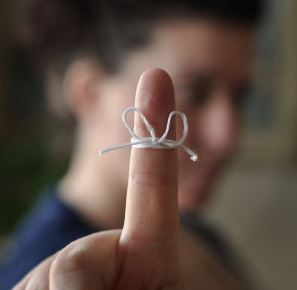Worth Repeating: Mobile Devices as Cognitive Aids for People with Brain Injuries

Thanks to the OT Tools in Public Schools Blog for recommending this article.
by Fiona Bessey-Bushnell
In my last article, I wrote about a local teen that experienced brain injury. March is Brain Injury Awareness Month and this time around I will share some strategies using mobile technologies to support those with brain injuries.
Just as every person is unique, the symptoms of brain injury may vary from one person to the next. Common cognitive challenges, however, include memory and attention issues, difficulty with step-by-step tasks, wayfinding and stress management.
Tony Gentry, PhD, OTR/L has treated clients with brain injuries for over 20 years and now directs VCU’s Assistive Technology for Cognition Laboratory, where he has conducted a series of studies on the use of mobile devices as cognitive aids.
Tony has found that reminder alerts on mobile devices can compensate for memory deficits after brain injury, helping people manage everyday tasks that they might otherwise forget. Tony says, “Nobody likes to be nagged. So when we begin, I ask a person, ‘What are the top 4 or 5 things that people nag you about the most?’ It might be something as routine as brushing your teeth or remembering to take medicine. Then we program the device to do the nagging, which reduces the need for supervision.”
Read the Rest of this Article on Richmondmom.com
PediaStaff is Hiring!
All JobsPediaStaff hires pediatric and school-based professionals nationwide for contract assignments of 2 to 12 months. We also help clinics, hospitals, schools, and home health agencies to find and hire these professionals directly. We work with Speech-Language Pathologists, Occupational and Physical Therapists, School Psychologists, and others in pediatric therapy and education.
